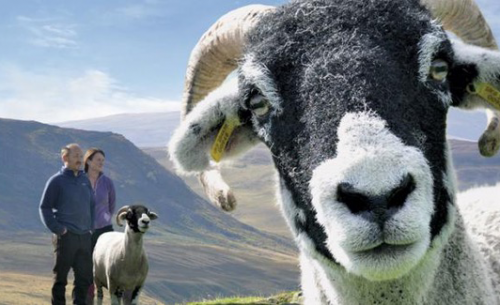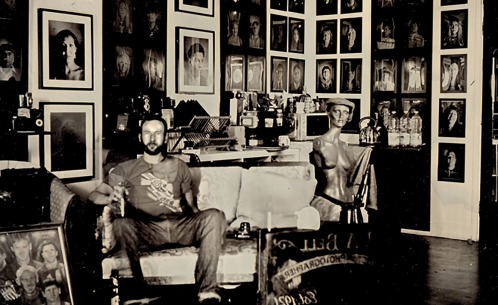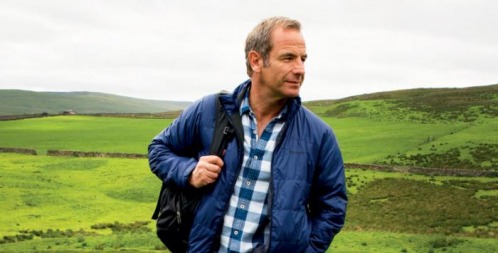Interview: Paralympian Stephen Miller talks Rio Olympic hopefuls

The North East has never had so many exciting medal hopes
Twenty years ago, Stephen Miller was, like most 16-year-olds, gearing up for his GCSEs. Unlike most 16-year-olds, by the end of the year he’d been to the Atlanta Paralympics and returned with a gold medal. ‘It’s scary to think how young and inexperienced I was,’ the 35-year-old recalls now.
‘The night I competed, there was a hurricane and we were delayed a few hours. My coach told me to go to sleep – genius! When we finally got out there my first throw at a Paralympics was called a foul. Squeaky bum time!
‘I kept it together, though, and threw the best on the night, even though I wasn’t expected to win. Still, when I look back it’s hard to believe I managed to perform so well at my first major games, but it probably shows the competitive mentality I have.’
Miller is now the elder statesman of the North East’s athletic family. The younger athletes, who’d have scarcely been old enough to remember Stephen’s early exploits, are developing into real contenders. There’s 24-year-old middle distance runner Laura Weightman, still of Morpeth Harriers, who won silver in the 1500m at the Commonwealth Games two years ago. On the water there’s Tees Rowing Club alumnus Kat Copeland who was only 21 when she and Sophie Hosking won the lightweight double sculls in London (and memorably shouted, ‘I’m going to be on a stamp’ in the immediate aftermath). After a year away from the sport in 2013 she’s back with a vengeance: her 2015 included a silver at the World Championships and a gold at the European Championships.
Hartlepool’s Savannah Marshall – another 24-year-old, and a homebird who commutes to GB Boxing’s Sheffield base from her mum and dad’s house – has fully exorcised the ghosts of her disappointing quarter-final defeat in the middleweight quarter-finals in London. She won gold at the EU Boxing Championships in 2013 and a gold in Glasgow two years ago, as well as reasserting herself as Britain’s best middleweight with a win at the GB Championships last November.
Josef Craig of Sunderland, an unexpected gold medallist in the S7 400m freestyle in London when he was only 15, now swims with athletes with greater mobility in the S8 category, not that that’s kept him off the podium; he picked up three bronzes at the European Championships in 2014. Bishop Auckland-based artistic gymnast Amy Tinkler, 16, made her senior debut last year too, winning the English and British Championships before joining the national squad for their bronze-winning effort at the World Championships.
When it comes to established names, Richard ‘the Teesside Tornado’ Kilty has been making waves. Having been unceremoniously dumped from the 100m relay team before the London Olympics, he had his funding cut and, being unable to even get to the track, ended up having to practise on the road outside his house in trainers. His fortunes perked up in 2014, when he astonished many by winning the 60m at the World Indoor Championships. Judging by his Twitter feed, he’s also found time to enjoy rappers 50 Cent and Meek Mill laying into each other on Instagram. Hey – we all need hobbies.
Kilty’s friend and fellow Teessider Chris Tomlinson, 34, is still chasing an Olympic or World Championship medal having finished sixth in London and fifth in Glasgow. Not forgetting Jess Eddie, 31, who’s been on the women’s eight rowing team for the last 12 years, through two fifth place finishes at successive Olympics.
Cramlington-born Miller, meanwhile, is hoping for a return to medal glory. He’s largely had it his own way since bursting onto the parasports scene in 1996. He was undefeated in his class of the club throw for nine years after winning gold in Atlanta, a winning run which included three World Championship golds and a further two Paralympic golds. In total, he’s won 26 international medals and had the honour of captaining the men’s Paralympic squad at the London Olympics.
His performance in London was dogged by a longstanding hip problem and he finished in a disappointing eleventh position. In spite of a solid few seasons since, and a silver at the 2014 European Championships, he’s still in the unusual position of having something to prove. Should he make the squad, Rio wouldn’t necessarily be Miller’s last hurrah, though. The 35-year-old is currently third in the world rankings and well-placed heading into the season’s first meeting in Dubai this March. The hip problem is a distant memory now too, he says.
‘My new hip has been fantastic since I had the operation in 2012. I delayed the surgery for two years as it was so major and there was no guarantee of success as it was going to be a complicated operation. My surgeons did an amazing job, though, and I’ve never looked back since. I feel as fit as I ever have.’
A solid block of training before Christmas has bolstered his confidence, leaving him to reflect that he is ‘not too far away’ from recapturing his best form. The fact remains, though, that he’s being forced to think about his future. Having been given an MBE in the New Year’s Honours lists, he intends to spend that future justifying the honour by ‘continuing to inspire people to be involved in sport and to support grassroots sport’.
Having watched SMILE Through Sport, his disability sports charity, grow quickly since its inception two years ago, it’s to SMILE which Miller sees his time being devoted after finishing his career: ‘My role is obviously limited due to the commitments involved in being a professional athlete, but when I do retire I am looking forward to making a bigger contribution to the work of SMILE.’
With so many young, local athletes approaching their prime competing alongside older athletes with international pedigree who’ve represented the region so well in the past, Rio could well be a watershed Games for athletics in the North East in the same way as London was for Yorkshire. (Who could forget the tubthumping when we heard that Yorkshire would have finished 12th in the medals table?) While we love sport up here, our major teams tend toward well-supported mediocrity: Rio’s a rare chance for the North East to shake off the underwhelming fug and find new heroes to stand alongside Steve Cram, Brendan Foster and the rest.
Miller recognises the transformative powers of the Games, not least because of his experiences last time around.
‘In London we did an amazing job of utilising that interest, and now we are ready for the next spike which will be in Rio – again, we have to make the most of the increased interest, and I intend to be a part of that.’







